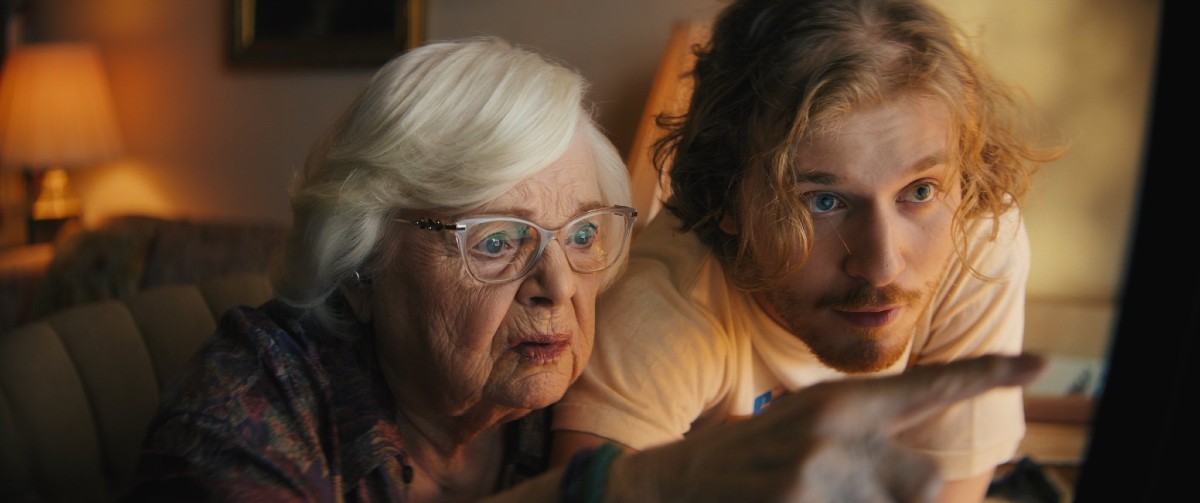
Now streaming on:
When you hear the premise of Josh Margolin’s feature debut, “Thelma,” you may think you know what the movie will be. Clearly modeled on his own family (the dedication at the close of the film is “for Thelma,” which suggests he didn’t even change the heroine’s name from that of his real-life grandmother), “Thelma” is a young filmmaker’s touching and funny tribute to the olds.
The film immediately establishes the uniquely strong bond between 93-year-old Thelma (June Squibb) and her Gen Z grandson Daniel (Fred Hechinger), an affable slacker. Squibb and Hechinger beautifully play this opening sequence, creating a believably deep intergenerational bond without overplaying it or dropping a lot of exposition. Cinema usually only gives us such scenes when the grandchild is a child, not 24, which is a shame because the intergenerational bond between a person in new adulthood and someone who is a veteran sets up a lot of interesting dynamics.
The film tackles just that by making it clear that Thelma and Daniel have a common problem: they're infantilized, chiefly by Daniel’s parents, Thelma’s daughter Gail (Parker Posey) and husband Alan (Clark Gregg). We are introduced to the couple during their busy respective workdays, which prevents them from answering Thelma's frantic calls. As a result, she gets taken by a telephone scam that costs her $10,000.
“Thelma” sensitively portrays the humiliation of this swindle and the way it forces Gail and Alan to wonder if the time has come to put Thelma in a home. But Thelma has another idea: she decides to get her money back.
“Thelma” was written, directed, and edited by Josh Margolin, who only has one other directing credit (a comedy short) and comes from the improv comedy world—his comedy background shows. Thelma may not move so quickly anymore, but Margolin’s camera frequently does. And his editing has a sharp sense of comic timing. A running joke in the film is the way it stylistically imitates “Mission: Impossible" (Thelma is watching Cruise sprint across a European rooftop, and it later inspires her to action), except here, the impossible mission may involve getting off the floor after a fall. The joke is melancholy when you consider the entire “Mission: Impossible” franchise as Cruise’s offensive against the inevitability of aging.
Thelma’s unlikely accomplice is Ben (Richard Roundtree), a widower and old acquaintance whom she finds a bore—that is, until she needs his cherry red two-seater scooter. Roundtree, in his final appearance in a feature film before his death last fall at age 81, resists the urge to parody his iconic John Shaft or allude to the character whatsoever—a testament to Margolin's restraint. After all, I'm sure the temptation was there. Instead, Roundtree plays a complete person and draws on a range he was far too seldom called upon to tap into. It’s a lovely performance and a moving farewell.
But needless to say, the whole film rests on June Squibb's shoulders. She brings to the part 78 years of acting experience, which is a joy to watch. Her Thelma is no saint; she is not a fount of wisdom, nor is she the kind of hacky, wacky, Funny Old Lady that was so popular in the films of my youth. Best not to say much about the final act aside from mentioning that her adversary is played by Malcolm McDowell, who manages to make his villain both funny, sad, and just a little frightening in his ruthlessness. Thelma makes questionable choices in her action-packed journey, but her refusal to give up her independence or be a victim ultimately makes her as heroic as a younger man jumping from one rooftop to another just to show us he can.
Brandon Wilson is a filmmaker, film writer, and lecturer.
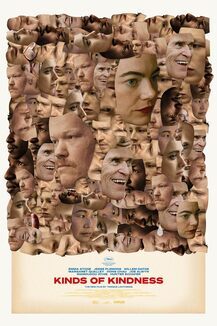


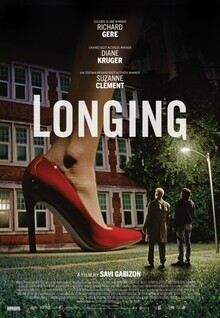

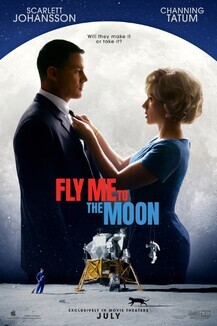
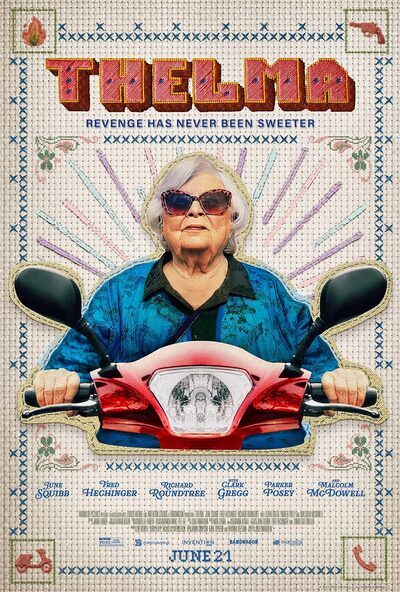
98 minutes
June Squibb as Thelma
Fred Hechinger as Daniel
Richard Roundtree as Ben
Parker Posey as Gail
Clark Gregg as Alan
Malcolm McDowell as Harvey